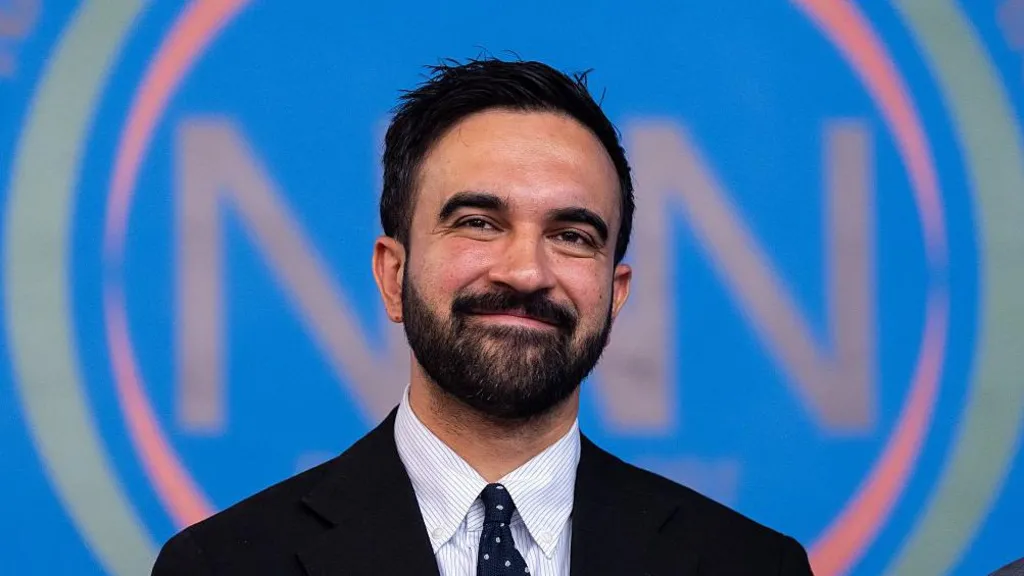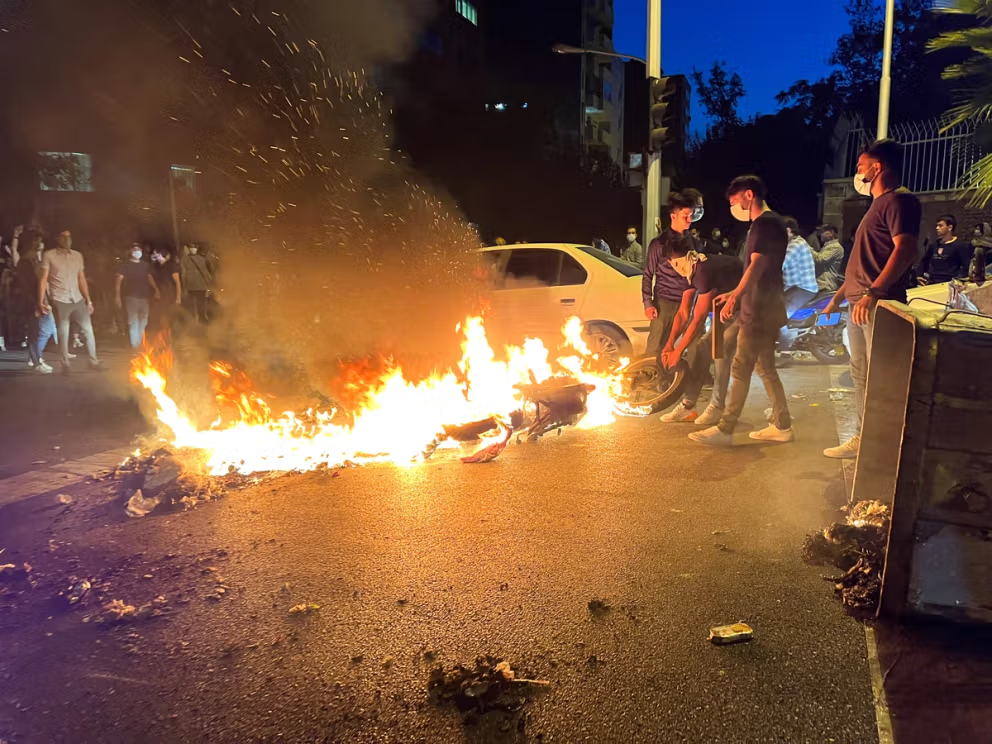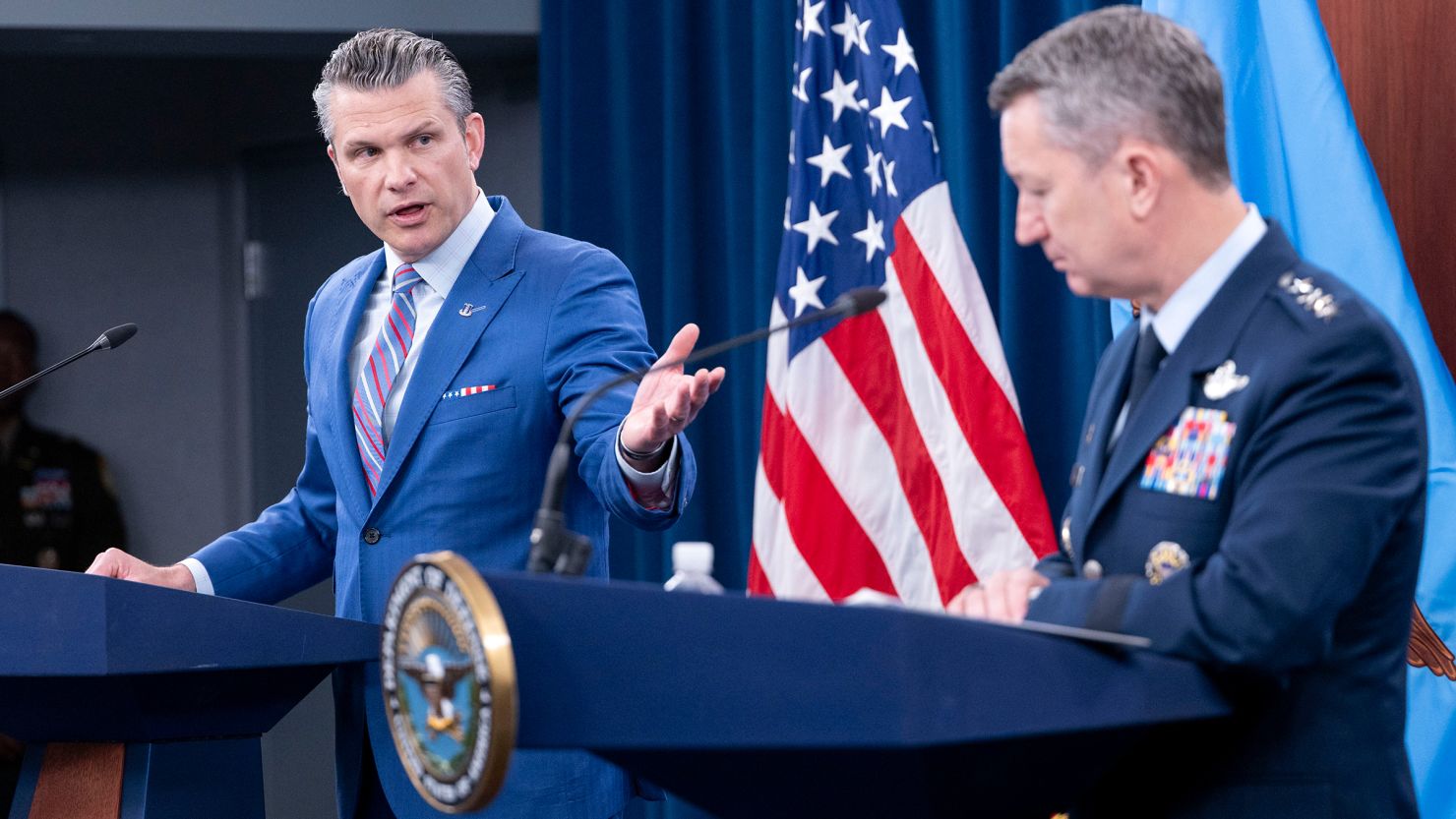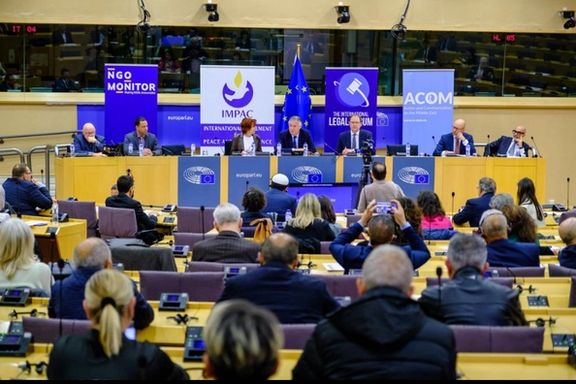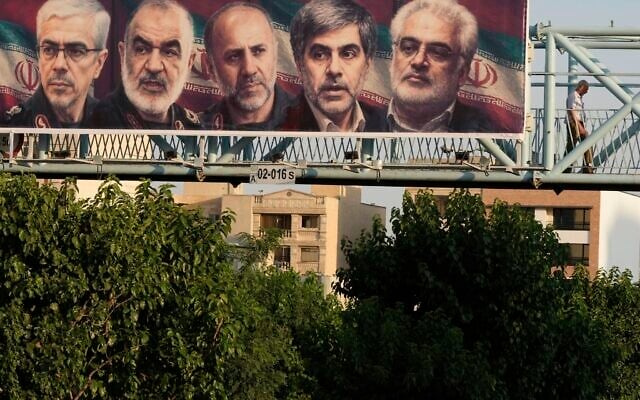"The fact that Iran is the only non-nuclear-weapon State in the world that is producing and accumulating uranium enriched to 60 percent remains a matter of serious concern, which has drawn international attention given the potential proliferation implications."
"[The IAEA cannot] ignore the potential proliferation implications [and it is not in a] position to provide assurance that Iran's nuclear program is exclusively peaceful."
International Atomic Energy Agency
"The Iranian regime is the most destabilizing force in the Middle East and the largest state sponsor of terrorism in the world."
"A nuclear-armed Iran would pose a grave threat to global security and U.S. national security."
"Allowing Iran to obtain nuclear weapons is an outcome that must never be allowed."
"This military escalation was ordered unilaterally, without Congressional authorization or meaningful consultation."
"There are important Constitutional implications that must be addressed going forward."
New Jersey Democrat Senator Cory Booker
"Presidents of both [U.S. political parties] have deployed U.S. forces and ordered the use of military force, without congressional authorization, on numerous occasions."
"Over the last two decades, Congress has acquiesced more and more to uses of military force by presidents of both parties without congressional approval and with little congressional oversight."
Adjunct senior fellow for international and national security law, Council on Foreign Relations, John Bellinger
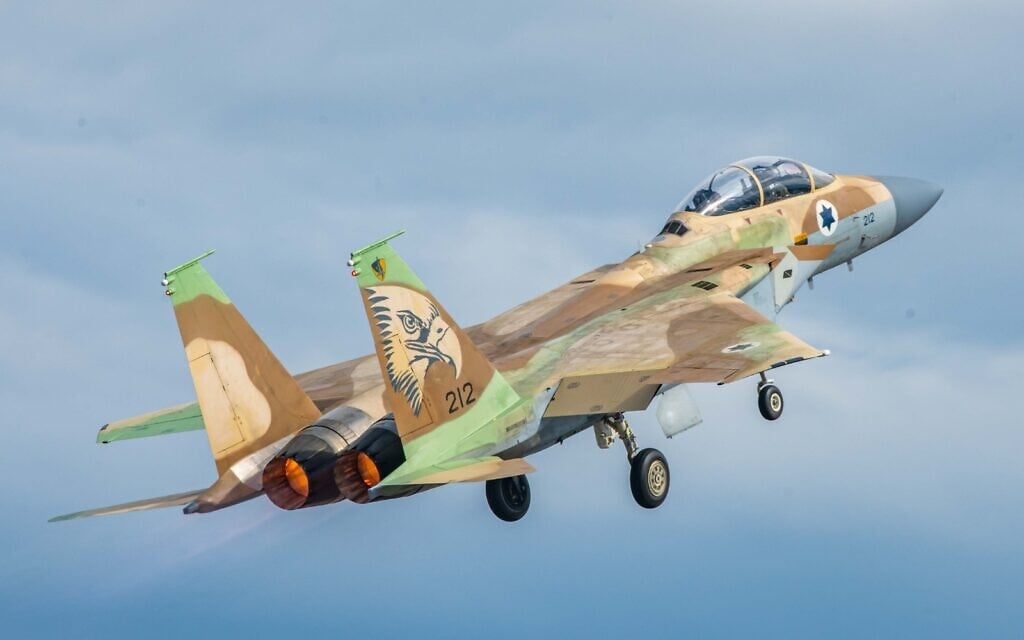 |
| An Israeli Air Force fighter jets takes off for strikes in Iran, June 18, 2025. (Israel Defense Forces) |
Three Iranian nuclear facilities, Fordow, Isfahan and Natanz, were struck on Saturday in preemptive assaults by the United States, which decided to join Israel in its aerial bombardment of Iran's nuclear installations with a view to prevent the Islamic Republic from succeeding in the manufacture of atomic bombs to add to its ballistic missile arsenal in its aspirations to produce warheads. Short-range ballistic missiles to be used to destroy Israel, long-range missiles to strike the United States; as threatened time and again.
According to the International Atomic Energy Agency, the largest sponsor of world terrorism is estimated to possess sufficient uranium to enable it to create nine nuclear weapons after undertaking the short step to enrich its uranium product from the current 60 percent to the required 90 percent enrichment. "Since 16 February 2021, the Agency has not been able to verify Iran's total enriched uranium stockpile precisely on any given day", reads the IAEA's May report of verification and monitoring in Iran.
As far as cooperating with the international inspection agency is concerned, Iran has never been open and above-board with respect to its nuclear plans and actual research and production practises. Inspectors were withheld the opportunity to monitor heavy water production required for the nuclear program; access to enrichment facilities were refused for Natanz and Fordow; and centrifuge inspections or other infrastructure were not allowed to proceed.
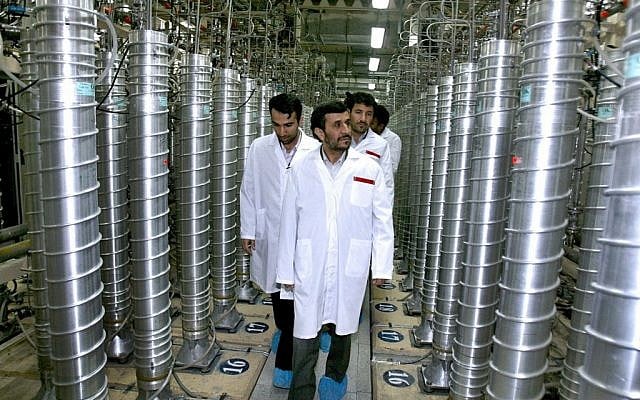 |
| Then-Iranian President Mahmoud Ahmadinejad visits the Natanz Uranium Enrichment
Facility some 200 miles (322 kilometers) south of the capital Tehran,
Iran in 2008. (AP/Iranian President’s Office) |
Iran is a signatory to the Joint Comprehensive Plan of Action between it and the United States, the United Kingdom, France, Russia, China and Germany, agreed to in 2015. When the deal was signed then-U.S. President Barack Obama, described the outcome as: "The historic deal which will prevent Iran from acquiring a nuclear weapon". This was a deal that failed to include Iran's emerging technology in the production of ballistic missiles, and one that completely sidestepped its primary links to terrorist groups.
Since that signing and the pledge inherent in its agreement a decade ago, Iran has hindered inspectors, flouted a key point of limiting levels of uranium enrichment to an agreed-upon 3.67 percent -- instead proceeding with enrichment of uranium to 60 percent in direct violation of the agreement. The Islamic Republic succeeded in amassing a stockpile of 408.6 kilograms of 60 percent uranium.
Figures from the IAEA state that 42 kilograms of 60 percent enriched uranium can produce one atomic bomb, enriched further to 90 percent. 408 kilograms therefore, represents a potential for nine weapons if further enriched. A controversy has erupted in the wake of Saturday's bunker-busting bombs aimed at penetrating the mountain fastness of the Fordow facility. There is uncertainty over the extent to which Iran's nuclear program was impacted.
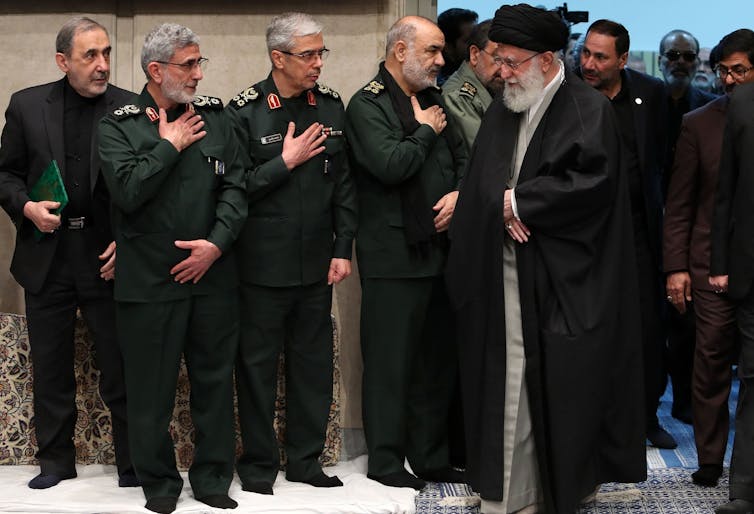 |
| Iran's Supreme Leader Ali Khamenei and his military leaders face an enemy with superior military hardware.
Anadolu via Getty Images |
Iran is unlikely to be entirely shut off from obtaining nuclear weapons in months or years into the future. What the strikes accomplished was to address the immediacy of the situation whereby prevention was required to ensure atomic bombs, so close to completion on the horizon, was set back for possibly a considerable amount of time. In that time, it would be possible, even feasible, that the regime would fall, and with it the Islamist ideology of acquiring weaponry of a striking calibre that could result in catastrophic loss of human life.
Were Iran to be left to its malign devices as it has been to the present time -- prior to Israel's unleashing of an aerial campaign of precision and determination to not only strike nuclear emplacements, but military and IRGC bases, weapons caches, along with assassinations of key government, military and scientific leading figures to send the program into disarray while eliminating many of the figures deeply involved in supporting nuclear weaponry development -- the production of nuclear weapons was assessed to be mere weeks or months ahead.
Iran's bad faith relationship with the nuclear inspectors, its hidden nuclear sites, its stated intentions threatening the survival of an entire country in the Middle East, naming other countries as enemies to be dealt with harshly as "Death to America" portends, made it a mandatory intervention of survival for at least two countries, and likely more, inclusive of the majority-Sunni Arab countries sharing the geography of the Middle East, which Iran's Shi'ite-led 'axis of evil' was groomed to conquer.
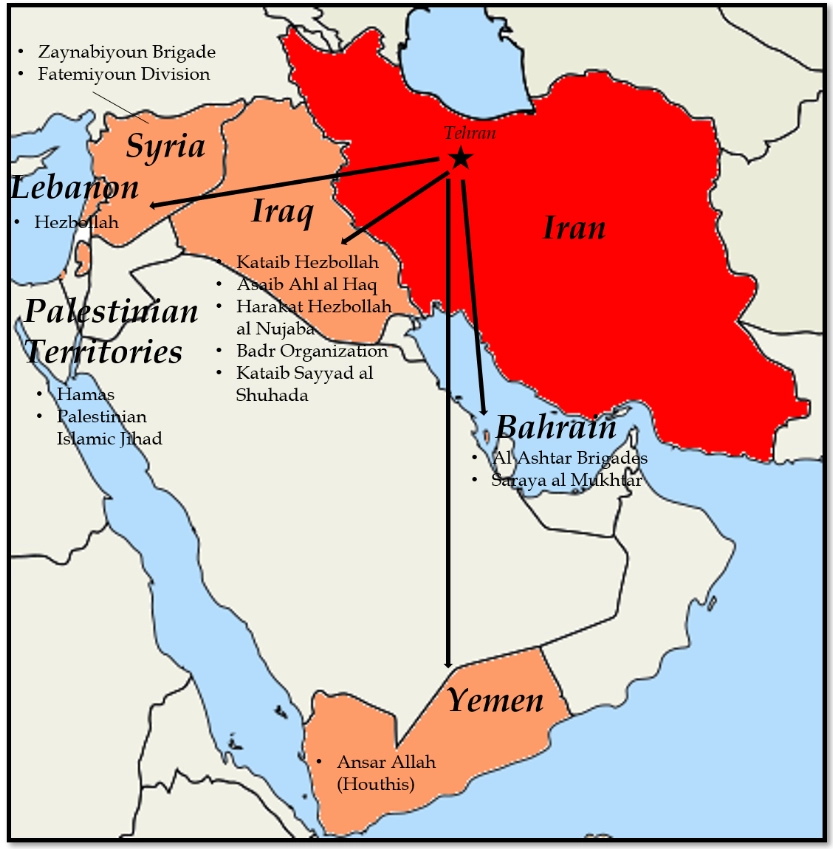
Iran has furthermore, trained and armed terrorist groups like Hezbollah in Lebanon, Hamas in Gaza, Houthis in Yemen, and Shiite militias in Iraq, providing them with updated technologically advanced rockets. There are no guarantees that Iran would withhold from its proxy terrorist groups atomic weaponry that would make them infinitely more dangerously effective at carrying out their directives from Iran to do its bidding in attacking and annihilating the Jewish state. Jihad demands total loyalty to the concept of killing non-believers as an obligation to Islam.
Terrorist groups in possession of nuclear weapons would represent a nightmare scenario of helplessness for any targeted population living in fear and trepidation of imminent attacks by terrorist groups for whom a massive death toll would be viewed as a success in following through that obligation to prove to Islam that the world stands in awe and suspense over where and when the final blow from Islamist terror would strike in its challenge of the non-Muslim democratic world.
The decisions made by Israel and the United States in striking at Iran and its threatening forces was long overdue in view of the simmering antagonisms and terrorist attacks taking place throughout the world as Islamist terror normalized its presence as a counter-weight in world affairs to long-distant colonial rule and the supremacy of Western thought, technology, laws and values in a world that Iran believes belongs to Islam and its values and laws.
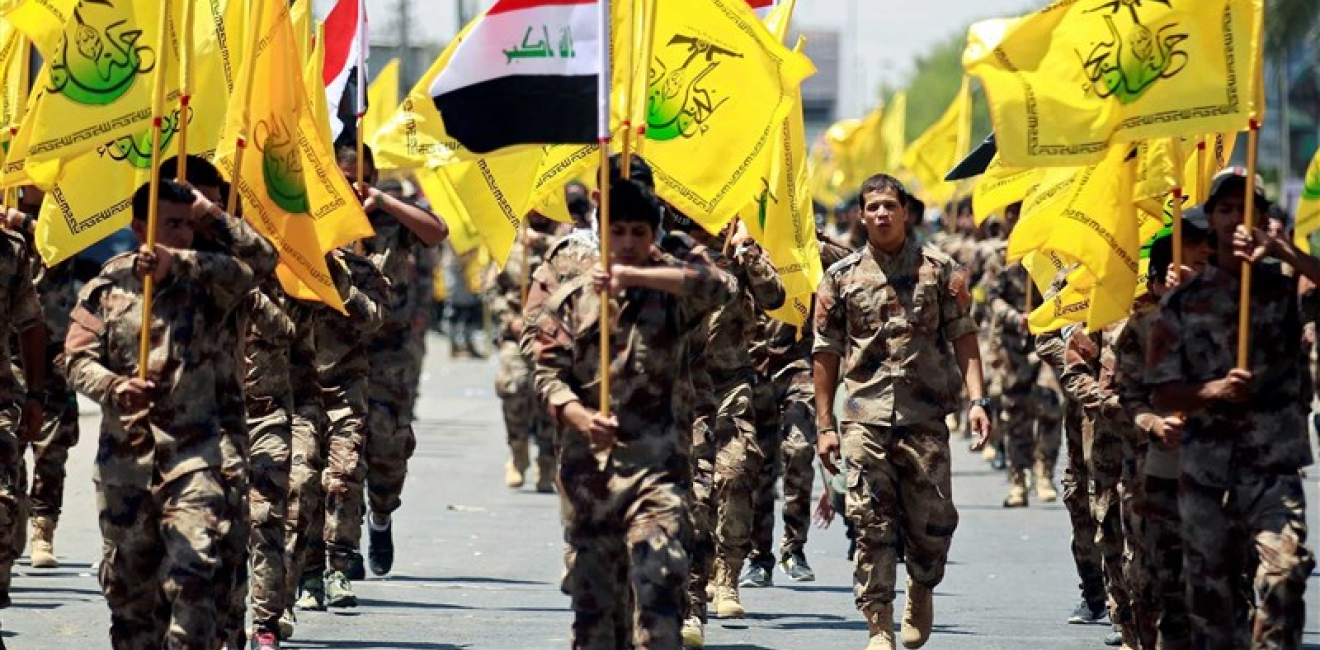 |
| Harakat Hezbollah al Nujaba, an Iraqi militia trained by Iran's Revolutionary Guards Wilson Center |
Labels: Blocking Nuclear Inspectors, Breakaway Uranium Enrichment, IAEA, Islamic Republic of Iran, Israel's Aerial Strikes on Iran, Nuclear Program, Threats, U.S. Bunker-Busting Strikes
